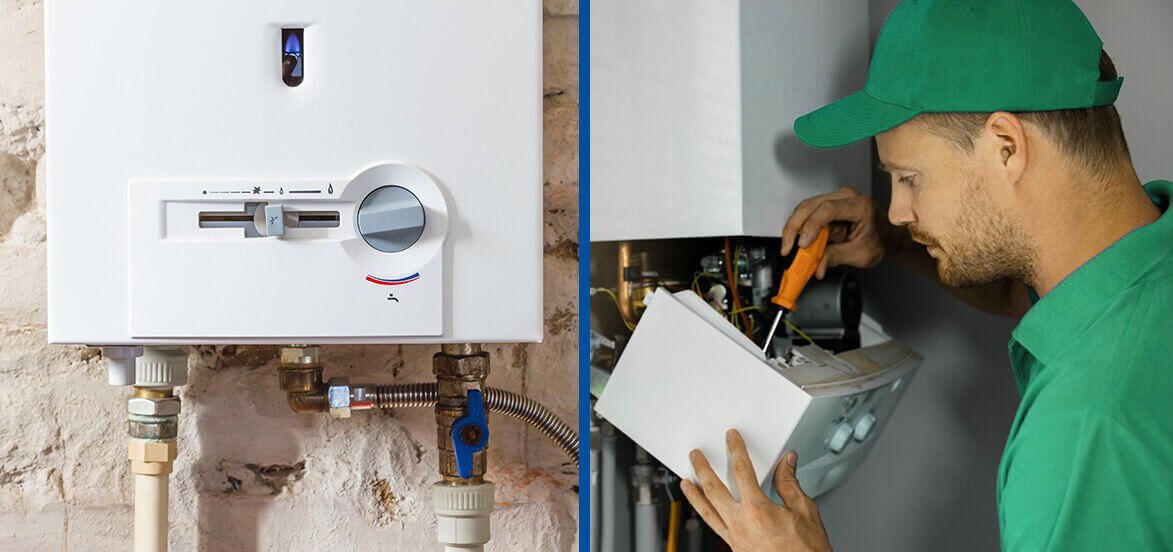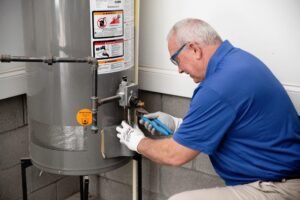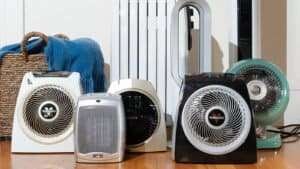
A functional water heater is essential for daily comfort, providing hot water for showers, cooking, cleaning, and more. However, like all appliances, water heaters have a finite lifespan and can suffer from various issues over time. Recognizing the signs that your water heater needs repair or replacement can save you from unexpected breakdowns and costly damages. Here’s what you need to know to keep your hot water flowing smoothly.

1. Inconsistent Water Temperature
One of the most noticeable signs that your water heater might need repair is inconsistent water temperature. If your showers fluctuate between scalding hot and ice-cold, it could indicate a problem with your heater’s thermostat or heating elements. In electric water heaters, a faulty heating element might be to blame, while in gas models, a malfunctioning thermostat could be the issue. While occasional temperature swings might be minor, persistent inconsistency often points to a more significant problem that needs attention.
2. Rusty or Discolored Water
If your hot water comes out rusty, brown, or discolored, this could be a sign of sediment build-up or corrosion within the tank. Rusty water is often an indication that the interior of the tank is beginning to deteriorate. In electric water heaters, sediment build-up can affect the efficiency of the heating elements, while in gas heaters, it can impact the burner assembly. If the water discoloration is limited to hot water only, it may be time to inspect or replace your water heater.
3. Unusual Noises
Water heaters often produce some noise during operation, but loud or unusual sounds such as banging, popping, or rumbling can signal problems. These noises are typically caused by sediment accumulation at the bottom of the tank, which can create steam bubbles that cause the popping sound. Over time, this sediment can cause overheating, reduce efficiency, and potentially damage the heater. If you hear such noises, it’s wise to have a professional inspect the heater to determine if flushing the tank or a replacement is necessary.
4. Leaking or Pooling Water
Visible leaks or pools of water around the base of your water heater are serious signs of trouble. Leaks often indicate that the tank has developed cracks or is corroding. The water could be coming from a loose valve, a cracked pipe, or the tank itself. If you notice any water pooling around your heater, it’s crucial to address the issue immediately, as continued leaks can lead to water damage in your home and potentially cause the heater to fail completely.
5. Old Age
Water heaters, like all appliances, have a finite lifespan. Most traditional tank-style water heaters last between 8 to 12 years, while tankless models can last up to 20 years with proper maintenance. If your water heater is approaching or exceeding its expected lifespan, it’s worth considering a replacement, even if it’s still operational. Newer models are often more energy-efficient and can save you money in the long run by reducing utility bills and improving performance.
6. Inadequate Hot Water Supply
If you’re constantly running out of hot water, it may be a sign that your water heater can’t keep up with your household’s demands. While it’s normal for hot water to run out during heavy use, a consistent lack of adequate hot water might indicate that your heater is too small for your needs or that it’s failing. If your water heater struggles to meet your family’s needs despite being relatively new, it may need repair or adjustment. In some cases, upgrading to a larger unit or a more efficient model may be the best solution.
7. Water Heater Warning Lights or Error Codes
Many modern water heaters, especially tankless and high-efficiency models, come equipped with diagnostic features. These systems may display warning lights or error codes when something is amiss. If your water heater’s display shows an error code or warning light, consult the manufacturer’s manual or contact a professional to interpret the code and determine the appropriate action. Ignoring these indicators can lead to more severe issues or complete failure of the unit.
8. Rising Energy Bills
A sudden spike in your energy bills can be a subtle sign that your water heater is becoming less efficient. As water heaters age, they often become less efficient due to build-up of sediment, rust, or failing components. An inefficient heater requires more energy to perform the same tasks, leading to higher utility costs. If you notice a significant increase in your energy bills without a corresponding increase in usage, it’s worth having your water heater checked for potential issues.
9. Frequent Repairs
If you find yourself repeatedly calling a plumber or technician to fix your water heater, it may be a sign that the unit is reaching the end of its useful life. Frequent repairs can become costly and may indicate that the water heater is on the verge of a more serious failure. In such cases, investing in a new, reliable model can be more cost-effective in the long run and provide greater peace of mind.
10. No Hot Water
The most obvious sign of a water heater issue is when there is no hot water at all. This could be due to a range of problems, from a tripped circuit breaker in an electric model to a pilot light that’s gone out in a gas model. Before assuming the worst, check basic troubleshooting steps like resetting the circuit breaker or relighting the pilot. If these don’t resolve the issue, a professional evaluation may be necessary to determine whether a repair or replacement is needed.
In summary, paying attention to these signs can help you avoid the inconvenience and expense of a failing water heater. Regular maintenance and timely repairs can extend the life of your water heater, but if it’s showing signs of significant wear or inefficiency, replacing it might be the best option for ensuring consistent and reliable hot water in your home.






